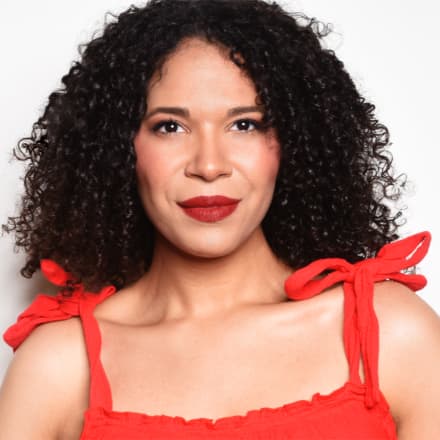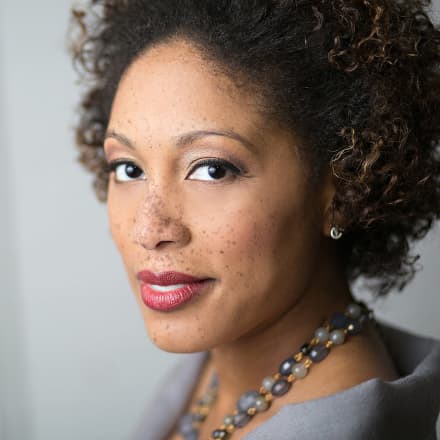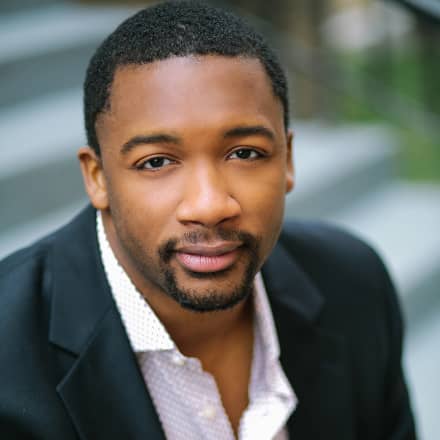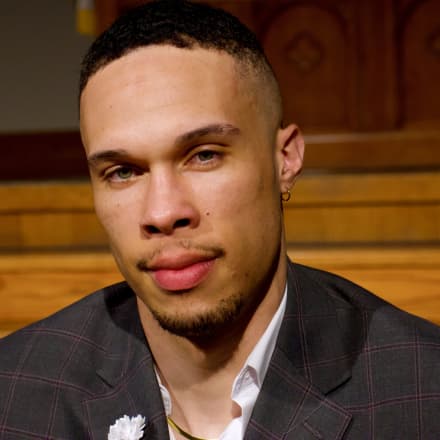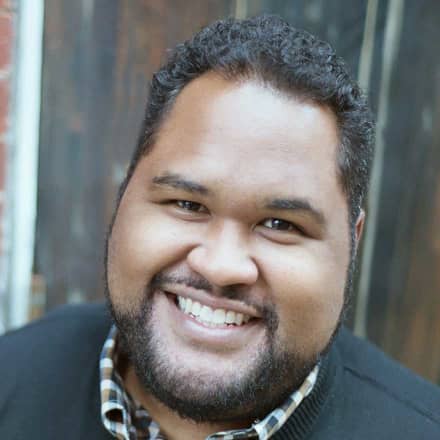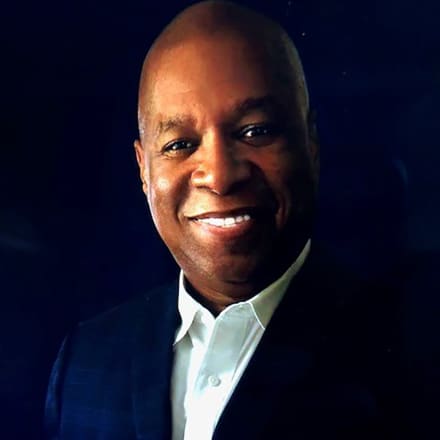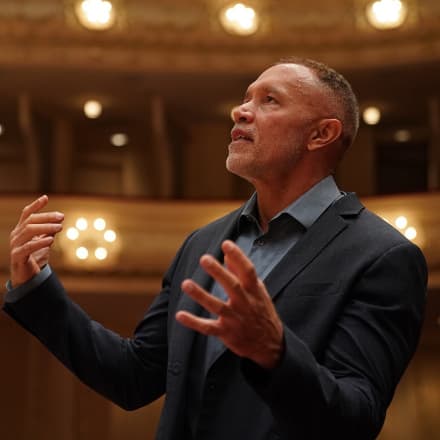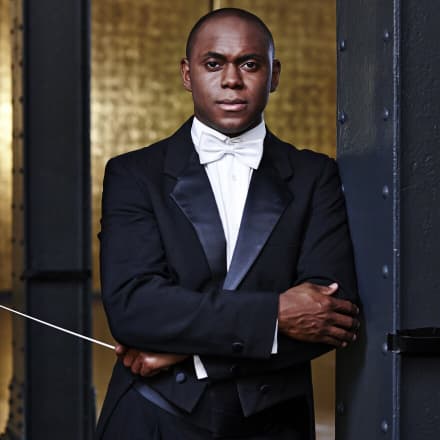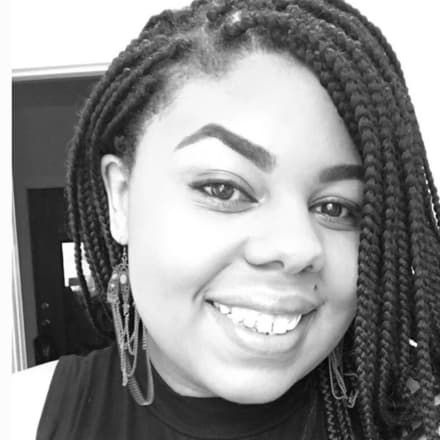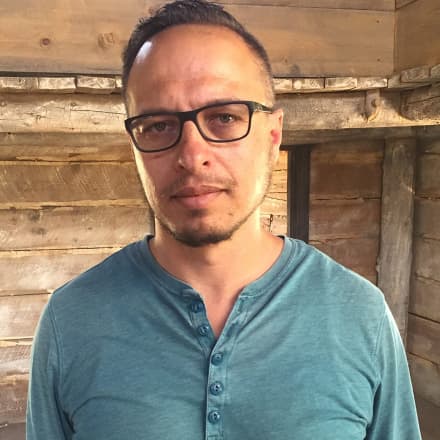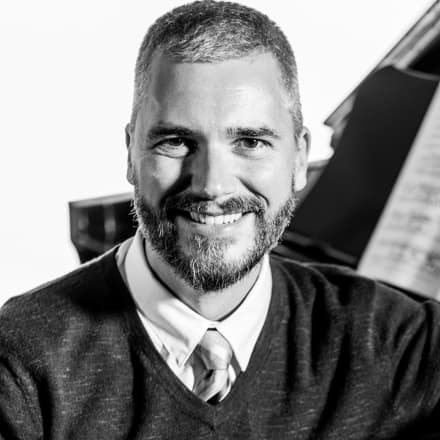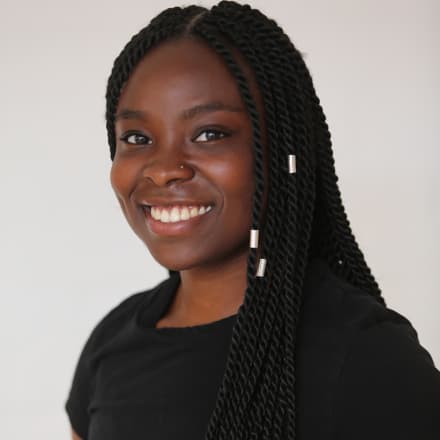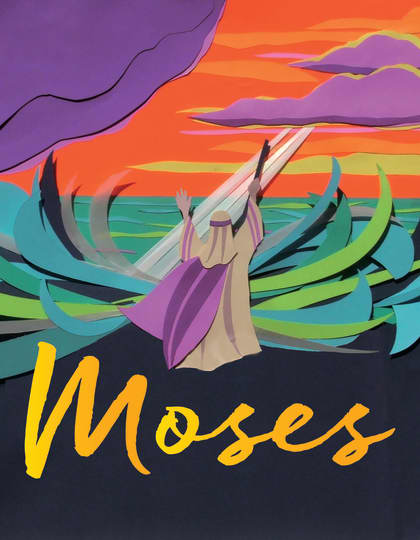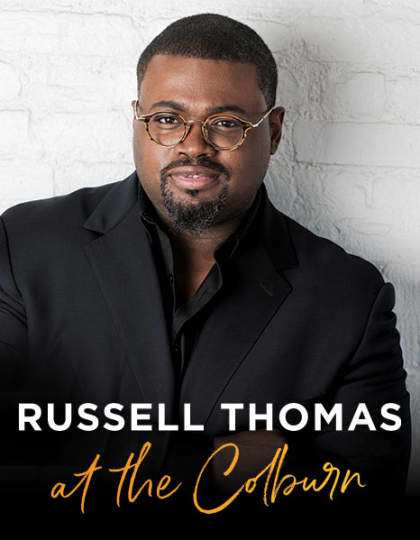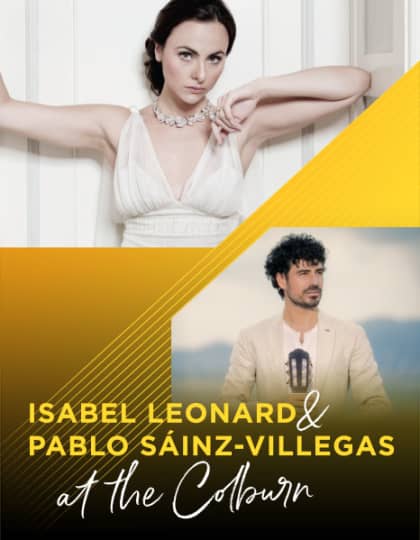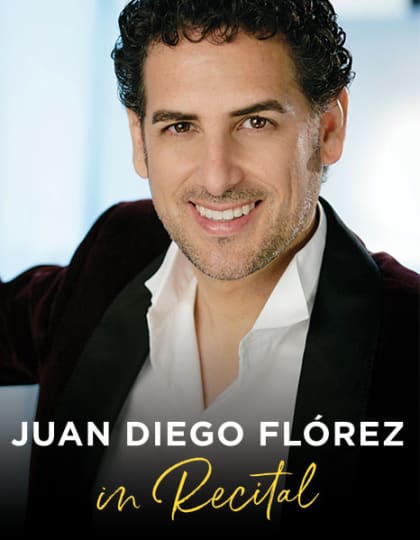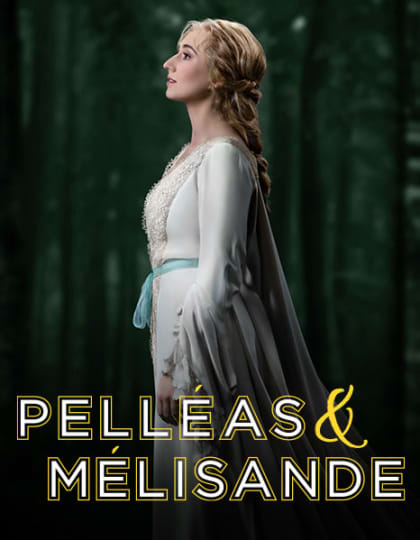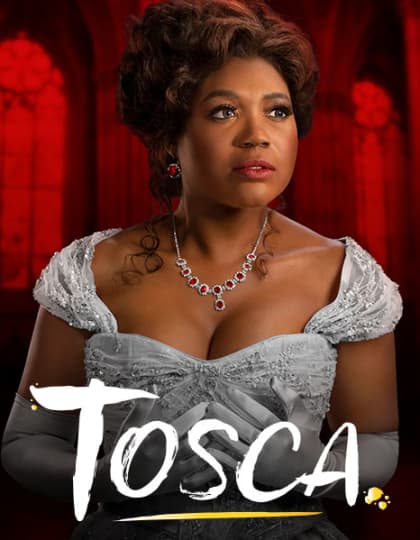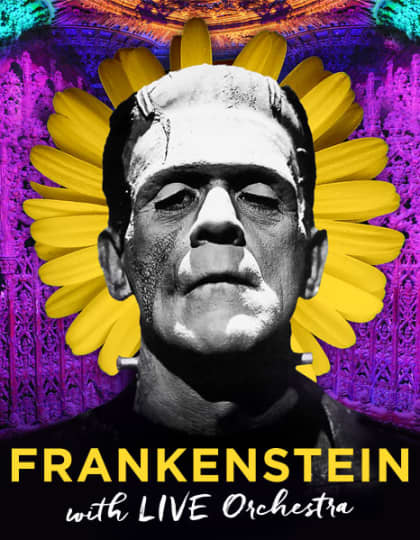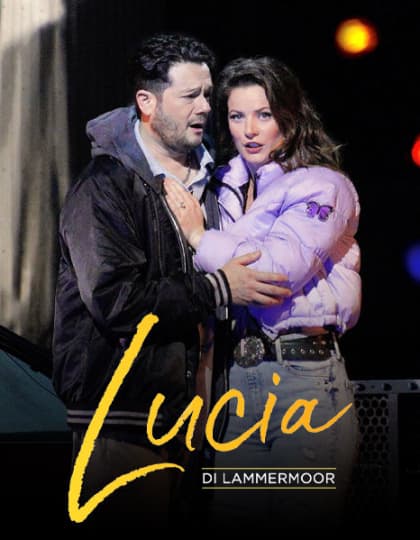ABOUT OMAR: In 1807, a 37-year-old scholar living in West Africa was captured and forced aboard a ship bound for Charleston, South Carolina. Omar Ibn Said's life and Muslim faith are remembered and retold in this inspirational West Coast premiere inspired by his remarkable 1831 autobiography (the only known surviving American slavery narrative written in Arabic).
Set in the shifting darkness of memory and imagination, Omar follows his compelling journey from a peaceful life in his homeland to enslavement in a violent, foreign world. Reflecting on his life journey, he's haunted by memories of his family and the people he encounters along the way. Through it all, he somehow remains true to himself and his faith, against all odds. The luminous score—composed by Rhiannon Giddens and Michael Abels—incorporates distinctive West African traditions with traditional opera instrumentation.
Tenor Jamez McCorkle makes his company debut in the title role, with bass-baritone Daniel Okulitch in a double role as two very different enslavers. Norman Garrett makes his company debut as Omar's brother, with Barry Banks as the auctioneer and Jacqueline Echols as Julie, an enslaved woman who gives Omar the key to a better life.
Learn more about the creative process of Rhiannon Giddens and Michael Abels in this Los Angeles Times article.
Sung in English with English subtitles.
Get More with a Subscription Package
Subscribers receive the best prices, easy payment plans, free ticket exchanges and more exclusive perks. Full Season Packages start at $110 or Design-Your-Own package for as low as $50. Explore Subscription Packages
Get a sneak peek of Omar on CBS Sunday Morning
Dive into the music and history of Omar in this interview with Rhiannon Giddens and Michael Abels about how their opera tells a largely-forgotten story.
"Triumphant... Divine... Omar lives again, thanks to the unconquerable power of his words, now borne aloft by the music of history."
Swipe for More
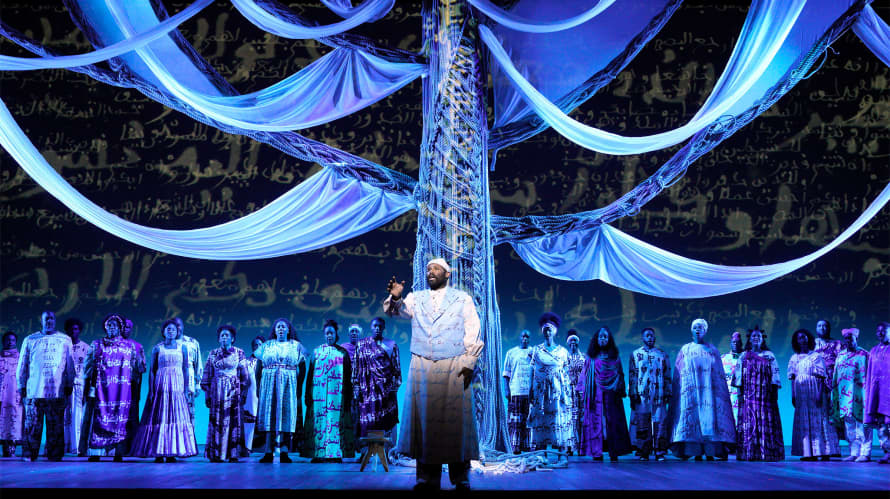
Jamez McCorkle as Omar
Cory WeaverSwipe for More
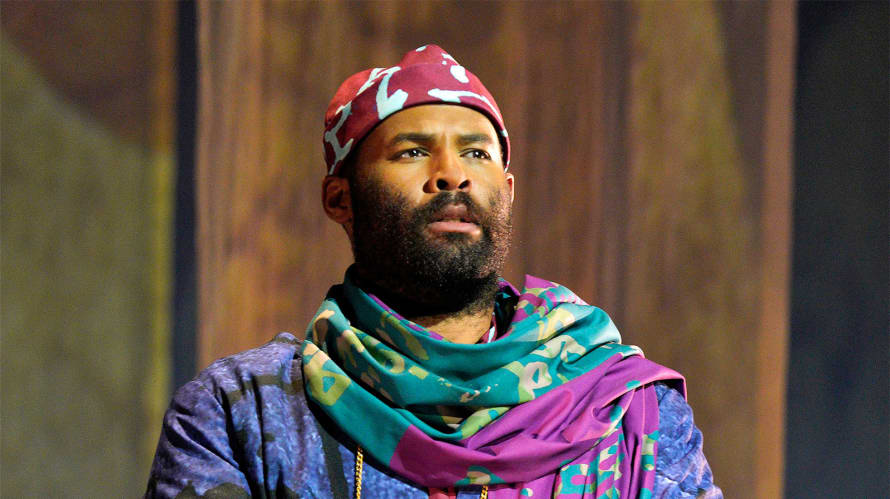
Jamez McCorkle as Omar
Cory WeaverSwipe for More
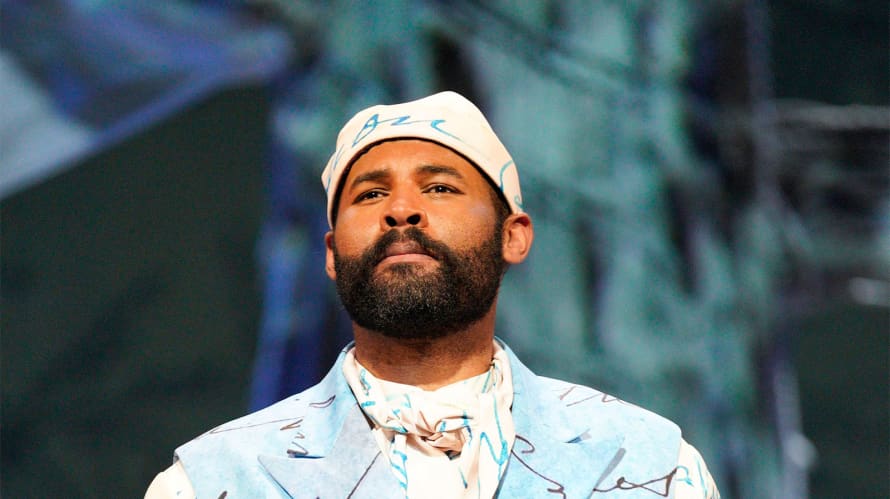
Jamez McCorkle as Omar
Cory WeaverSwipe for More
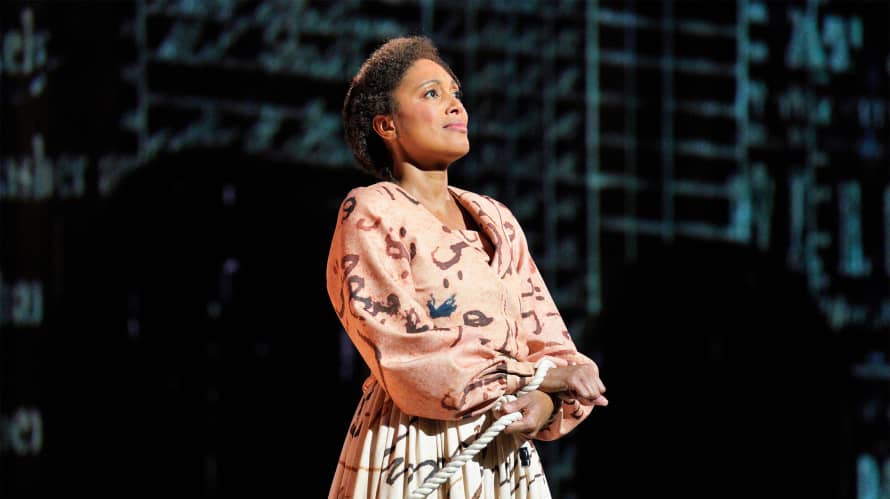
Jacqueline Echols as Julie
Cory WeaverSwipe for More
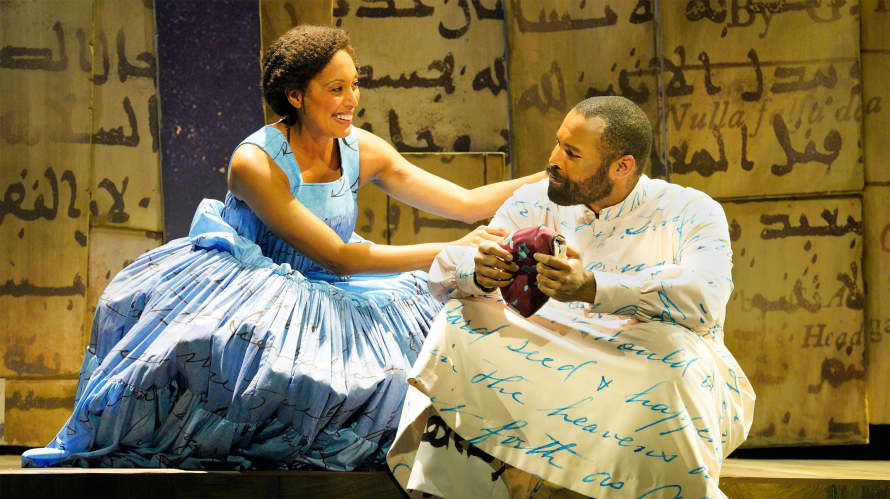
Jacqueline Echols as Julie and Jamez McCorkle as Omar
Cory WeaverSwipe for More
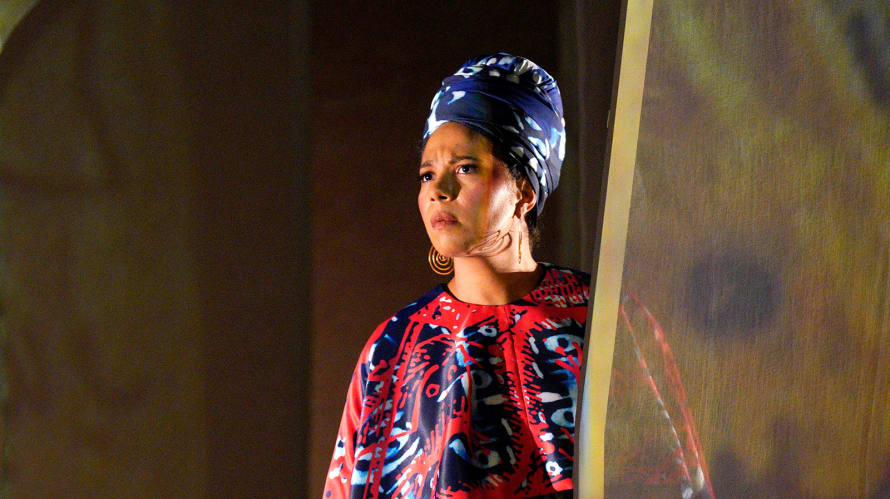
Amanda Lynn Bottoms as Fatima
Cory WeaverSwipe for More
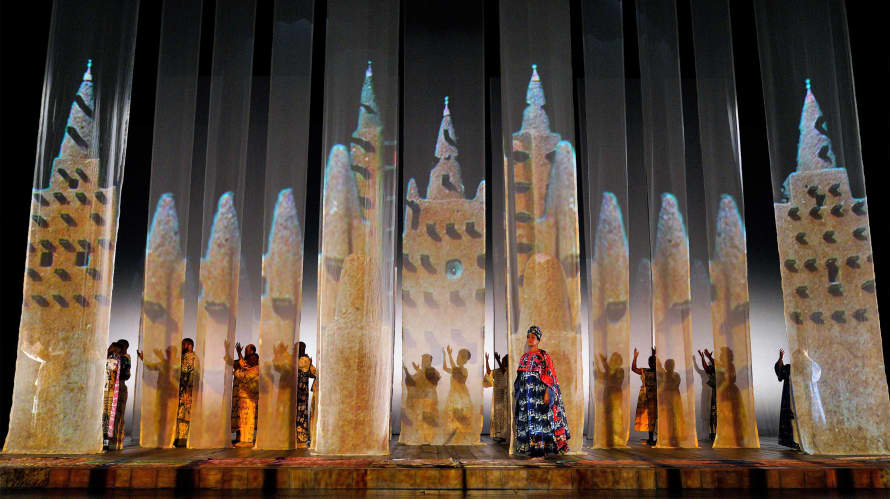
Amanda Lynn Bottoms (foreground) as Fatima
Cory WeaverSwipe for More
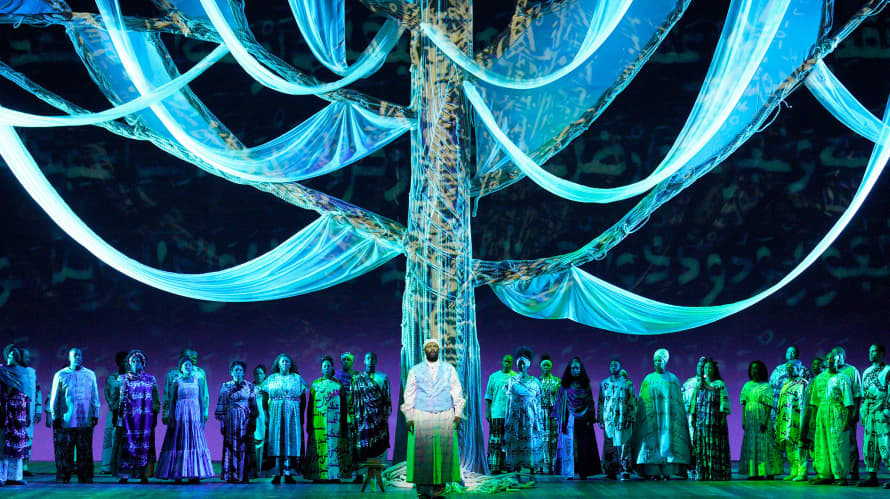
Jamez McCorkle (center) as Omar
Cory WeaverSwipe for More
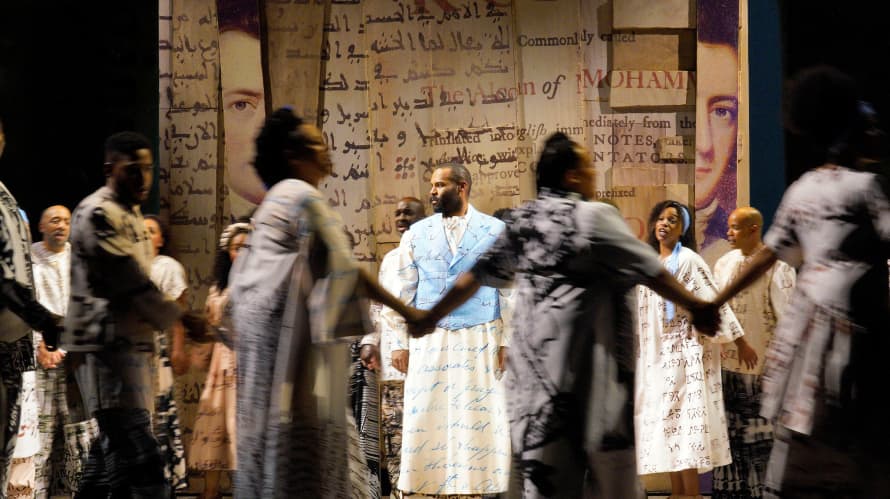
Jamez McCorkle (center) as Omar
Cory WeaverSwipe for More
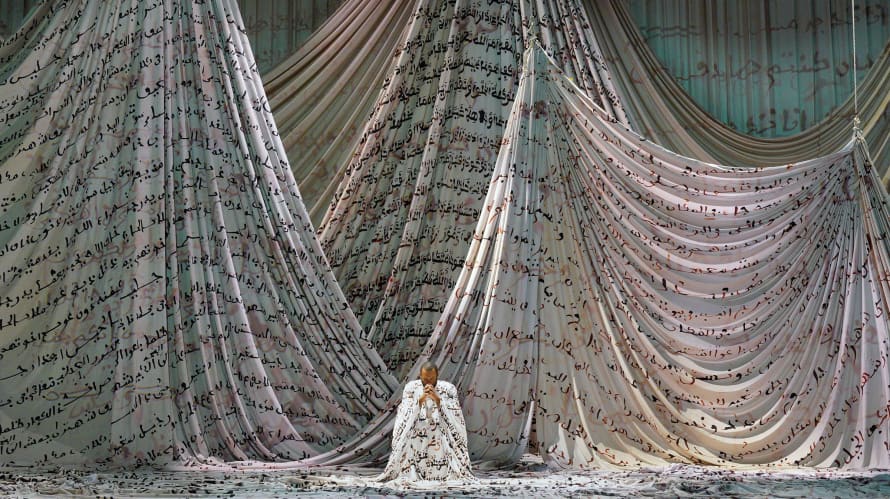
Jamez McCorkle as Omar
Cory WeaverSwipe for More
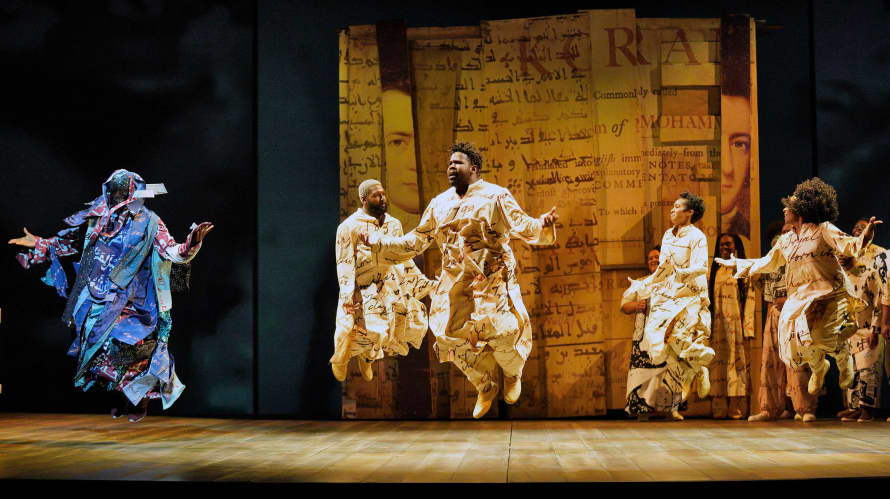
The dancers in "Omar"
Cory WeaverSwipe for More
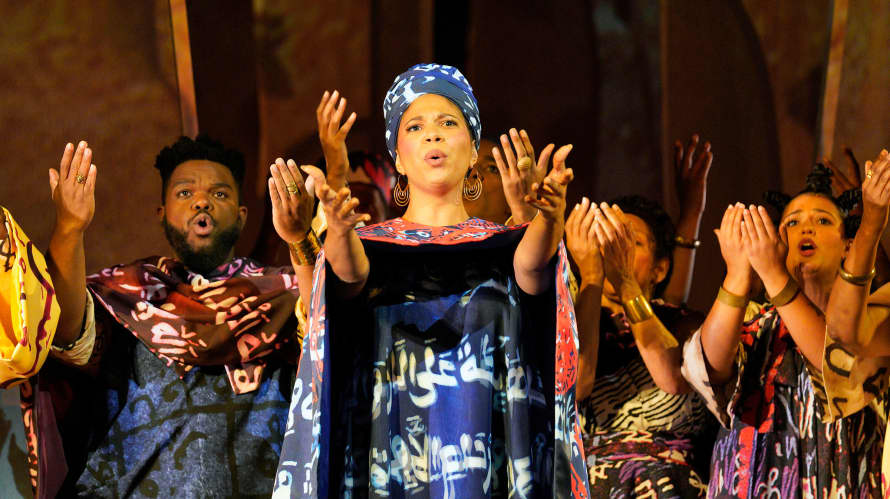
Amanda Lynn Bottoms as Fatima
Cory WeaverSwipe for More
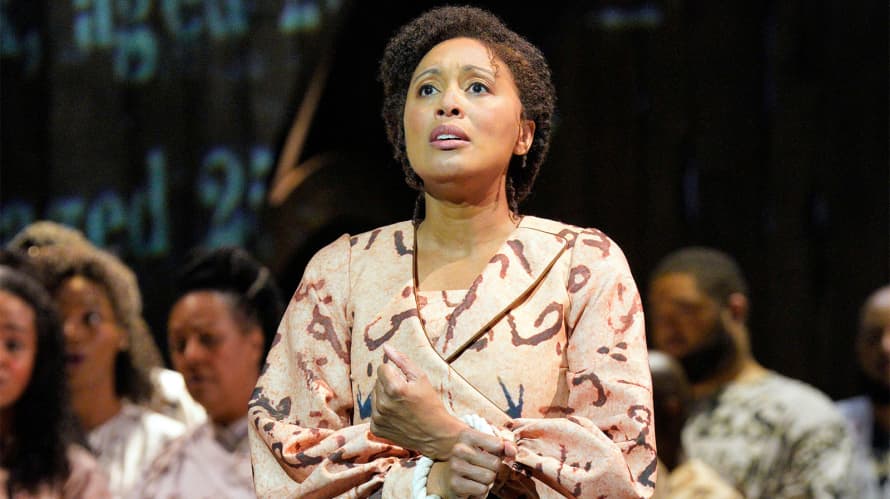
Jacqueline Echols as Julie
Cory WeaverSwipe for More
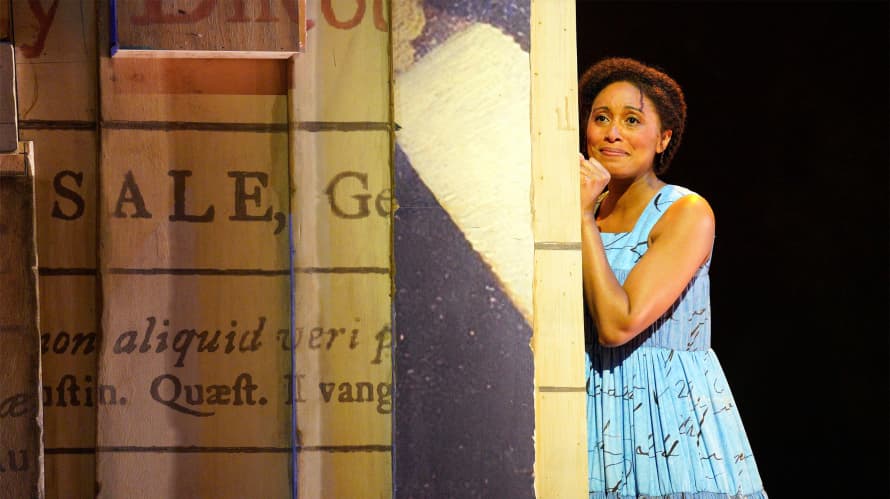
Jacqueline Echols as Julie
Cory WeaverSwipe for More
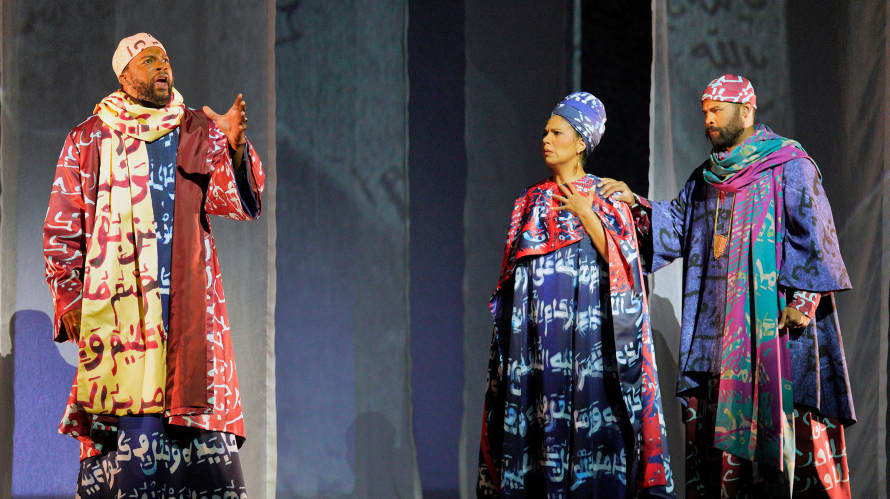
Norman Garrett (Abdul), Amanda Lynn Bottoms (Fatima) and Jamez McCorkle (Omar)
Cory WeaverSwipe for More
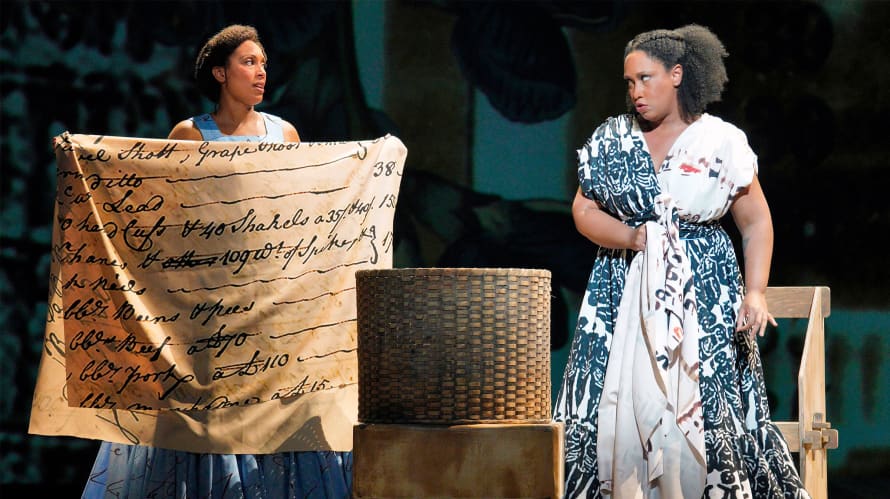
Jacqueline Echols as Julie and Briana Hunter as Katie Ellen
Cory WeaverSwipe for More
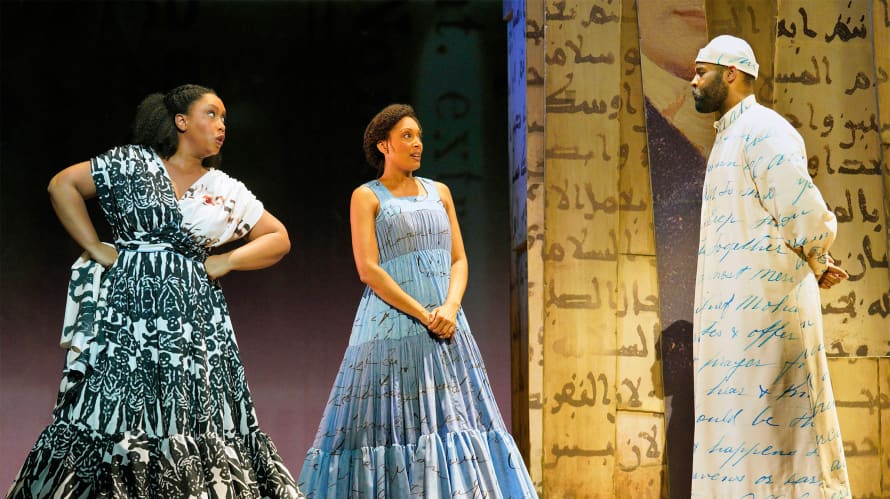
Briana Hunter as Katie Ellen and Jacqueline Echols as Julie
Cory WeaverSwipe for More
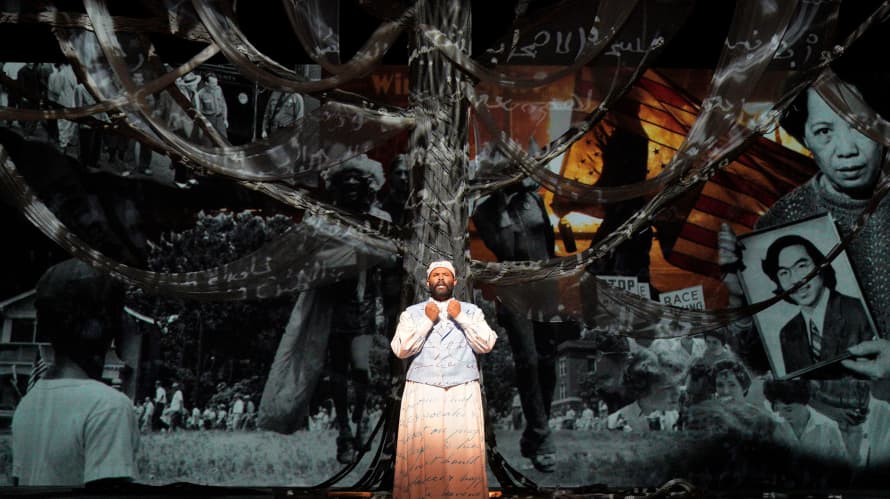
Jamez McCorkle as Omar
Cory WeaverSwipe for More
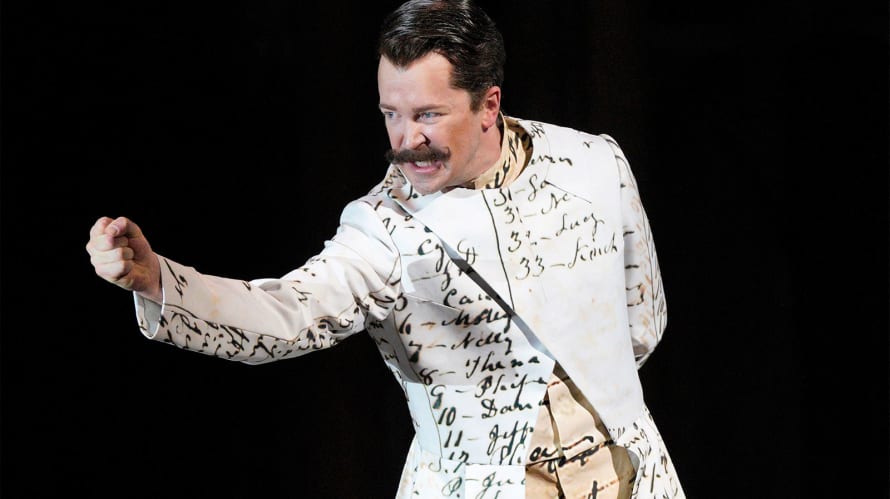
Daniel Okulitch as Johnson
Cory WeaverSwipe for More
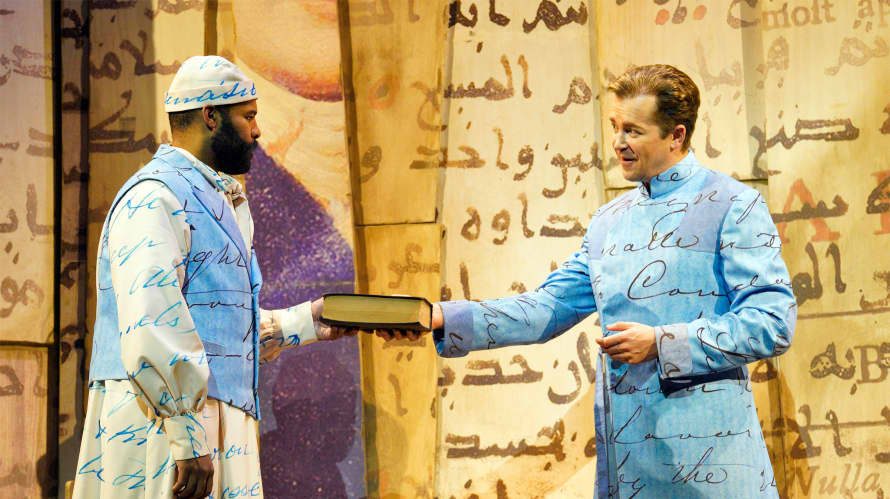
Jamez McCorkle as Omar and Daniel Okulitch as Owen
Cory WeaverSwipe for More
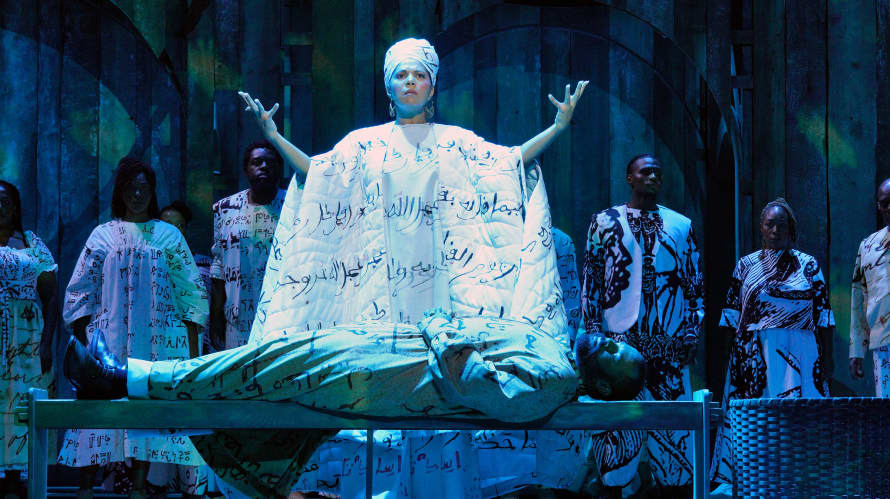
Amanda Lynn Bottoms as Fatima and Jamez McCorkle (reclining) as Omar
Cory WeaverSwipe for More

Amanda Lynn Bottoms as Fatima
Cory WeaverSwipe for More
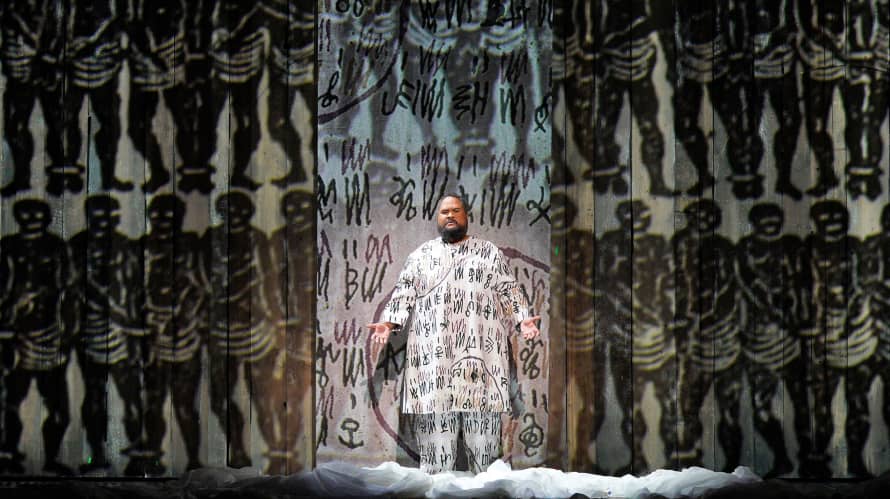
Ashley Faatoalia as Amadou
Cory WeaverSwipe for More
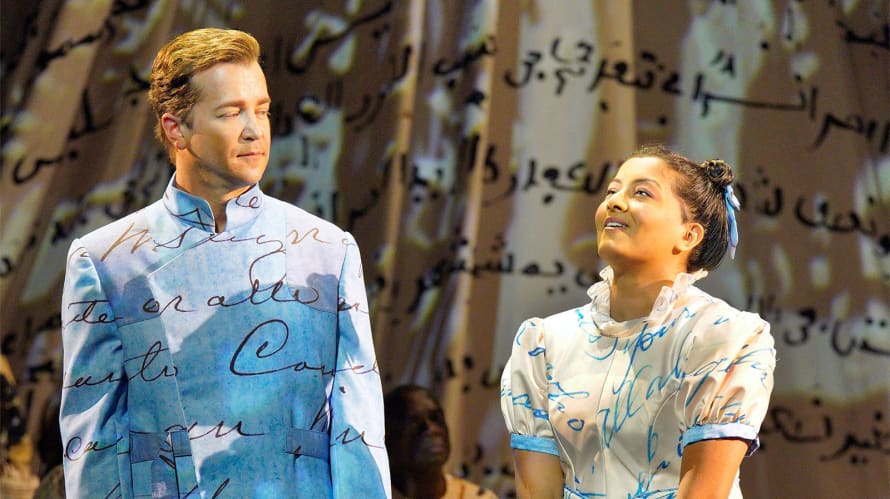
Daniel Okulitch as Owen and Deepa Johnny as Eliza
Cory WeaverSwipe for More
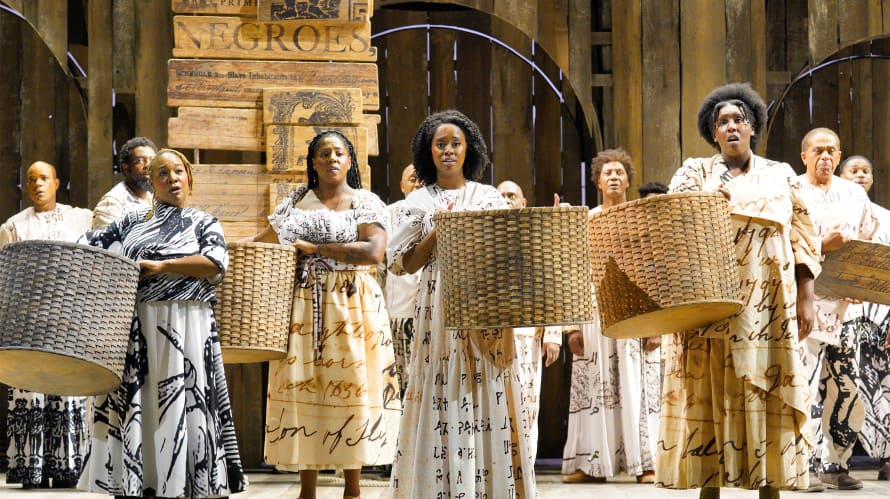
The "Omar" ensemble
Cory WeaverSwipe for More
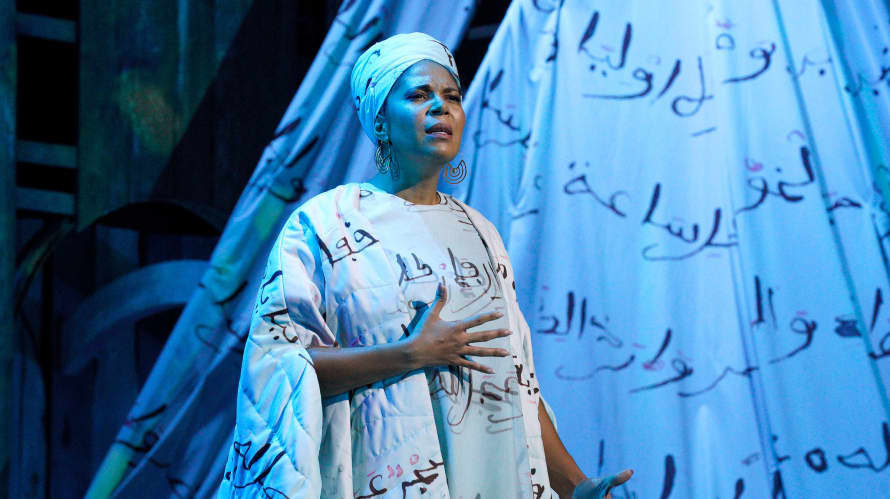
Amanda Lynn Bottoms as Fatima
Cory WeaverSwipe for More
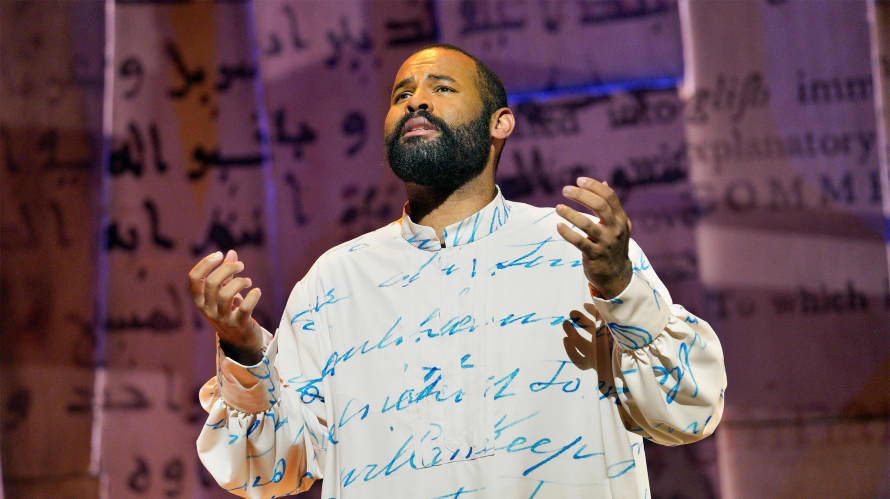
Jamez McCorkle as Omar
Cory WeaverSwipe for More
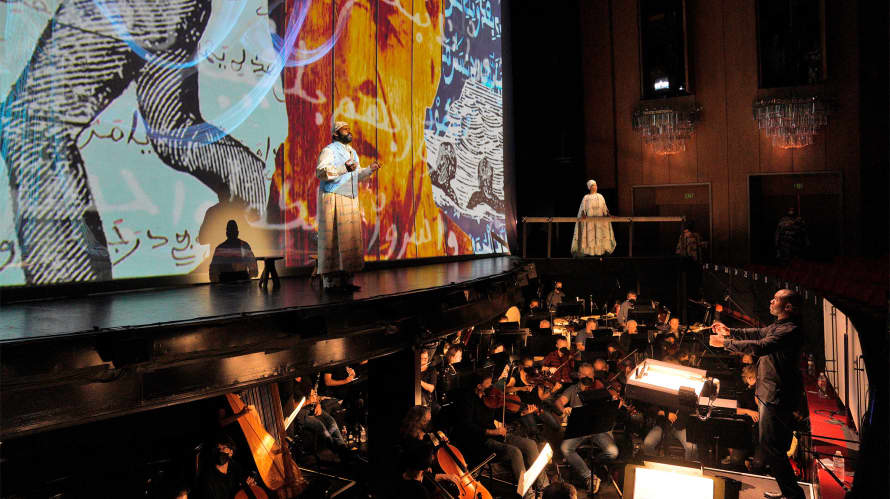
Jamez McCorkle (onstage) as Omar, Amanda Lynn Bottoms (center rear) as Fatima, with conductor Kazem Abdullah in the orchestra pit
Cory WeaverSwipe for More
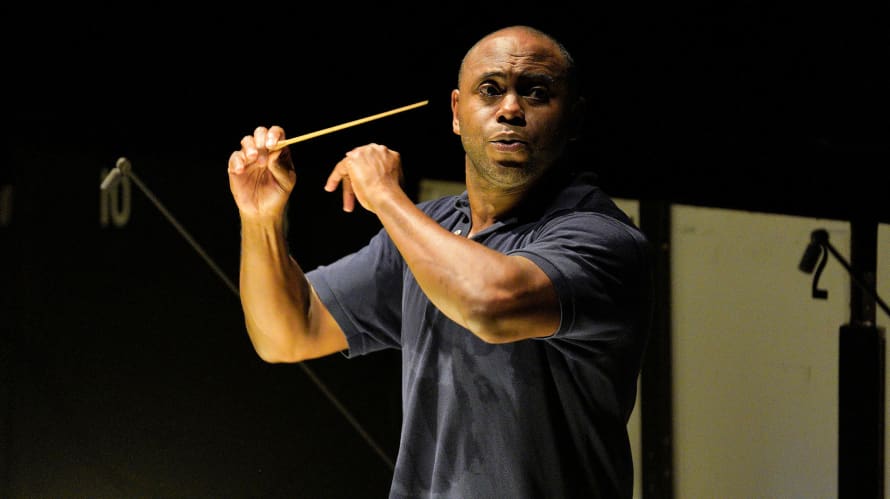
Kazem Abdullah conducting a rehearsal of "Omar"
Cory WeaverSwipe for More

Portrait of Omar Ibn Said (1770-1864)
Swipe for More
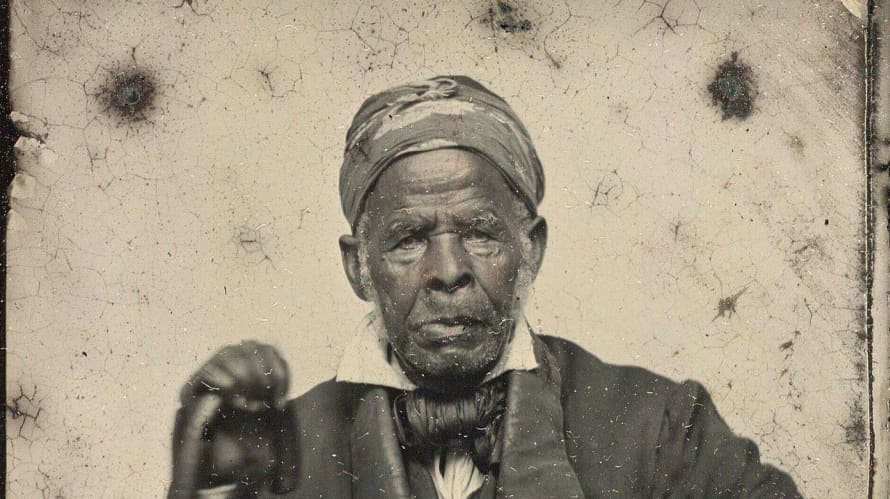
Portrait (circa 1850) of Omar Ibn Said (1770-1864)
Swipe for More
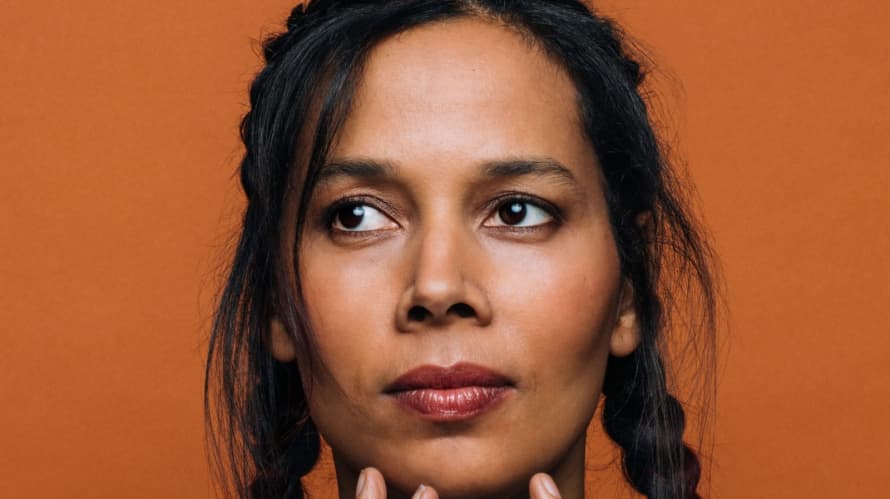
Rhiannon Giddens, co-composer of "Omar"
Ebru YildizSwipe for More
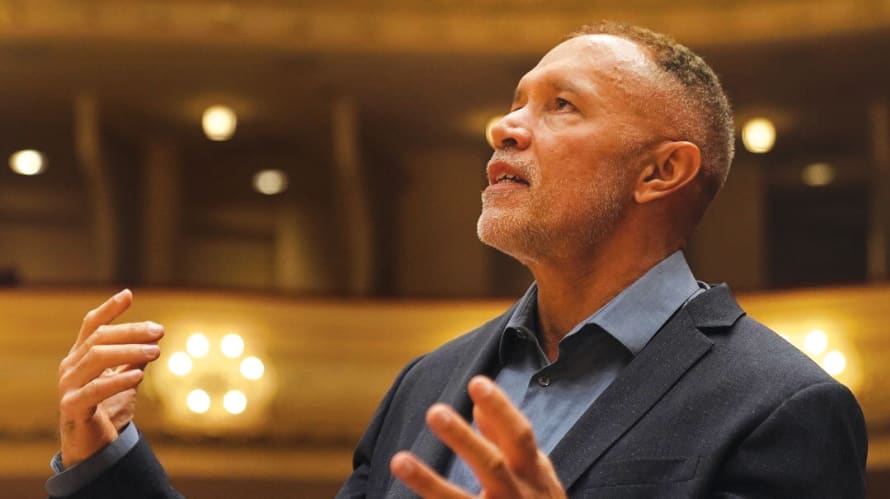
Michael Abels, co-composer of "OMAR"
Todd RobinsonSwipe for More
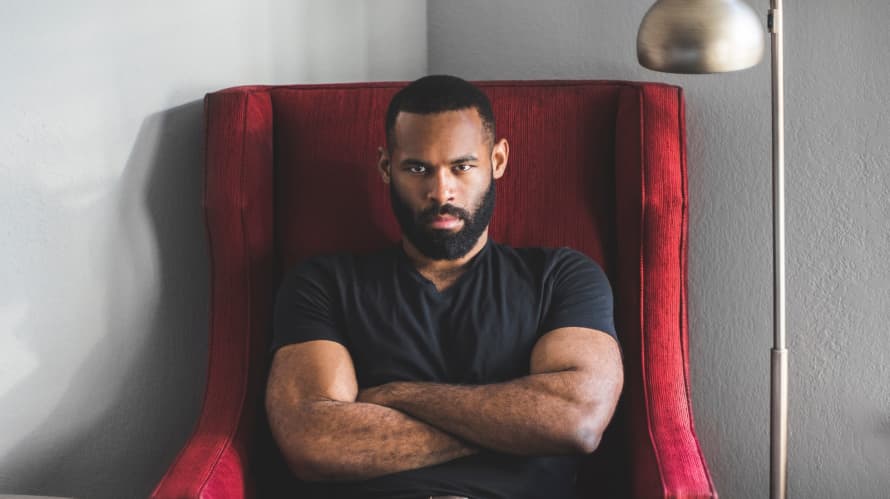
Jamez McCorkle makes his LA Opera debut in the title role of "Omar"
Vincent MasterSwipe for More

Daniel Okultich sings the double role of Johnson and Owen in "Omar"
Swipe for More
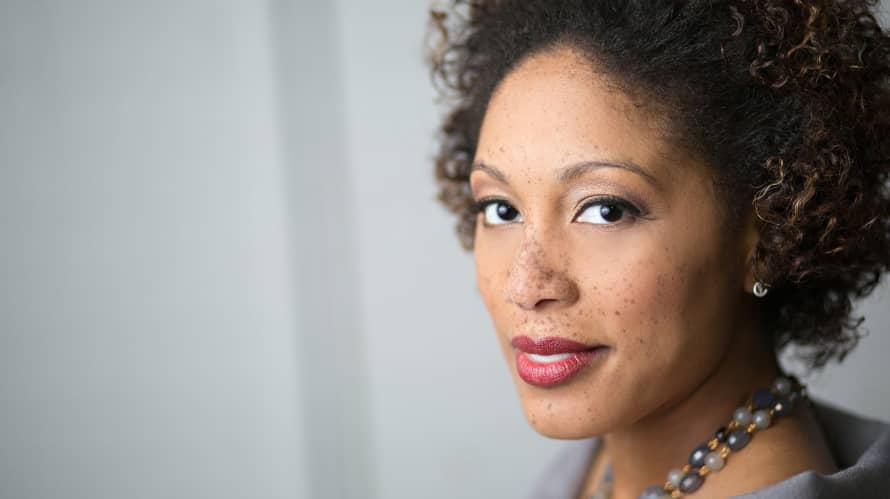
Jacqueline Echols sings the role of Julie in "Omar"
Listen to Rhiannon Giddens perform "Julie's Aria" from Omar below:
Cast
- Omar
- Jamez McCorkle
- Fatima, Omar's Mother
- Amanda Lynn Bottoms
- Johnson / Owen
- Daniel Okulitch
- Julie
- Jacqueline Echols
- Auctioneer / Taylor
- Barry Banks
- Eliza, Owen's Daughter
- Deepa Johnny
- Katie Ellen
- Briana Hunter
- Abdul, Omar's Brother
- Norman Garrett
- Abe
- Alan Williams
- Amadou
- Ashley Faatoalia
- Olufemi
- Cedric Berry
- Suleiman
- Patrick Blackwell
- Principal Dancer
- Jermaine McGhee
Creative Team
- Composer/Librettist
- Rhiannon Giddens
- Composer
- Michael Abels
- Conductor
- Kazem Abdullah
- Director
- Kaneza Schaal
- Production Designer
- Christopher Myers
- Scenery
- Amy Rubin
- Costumes
- April M. Hickman
- Costumes
- Micheline Russell-Brown
- Lighting
- Pablo Santiago
- Projections
- Joshua Higgason
- Chorus Director
- Jeremy Frank
- Choreographer
- Kiara Benn
- Associate Choreographer
- Yusuf Nasir
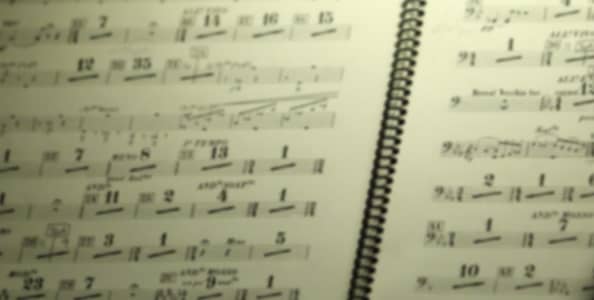
Read the synopsis
West Coast premiere
Sung in English with English subtitles.
The estimated running time is two hours and 45 minutes, including one intermission.
Click here to read the digital program.
Pre-Show Talk - one hour before the performance
Learn more about the opera and its two composers with Dr. Tiffany Kuo, professor of music at Mount San Antonio College and an LA Opera Connects affiliated scholar. Pre-show talks are complimentary for all ticket holders and held on the second floor of the Dorothy Chandler Pavilion.
Presented by

Production made possible with generous support from The Bernard and Lenore Greenberg Opera Fund
LA Opera’s 2022/23 season is generously underwritten by GRoW @ Annenberg
LA Opera Orchestra generously underwritten by Terri and Jerry Kohl
Omar is co-produced by Spoleto Festival USA and Carolina Performing Arts at the University of North Carolina, Chapel Hill, and co-commissioned by LA Opera, Spoleto Festival USA, Carolina Performing Arts, Boston Lyric Opera, San Francisco Opera and Lyric Opera of Chicago.
Omar is inspired by Dr. Ala Alryyes's translation of Omar Ibn Said's autobiography in his book A Muslim American Slave: The Life of Omar Ibn Said.
Published by and presented with the permission of Subito Music Corporation
Additional tickets for Nov. 13 available by calling the Box Office at 213-972-8001
View Dates, Pricing and More-
GET ACCESS {{ performance.display_time }}AvailableOnline{{ performance.display_day }}{{ performance.display_month_clean }} {{ performance.display_date }}




